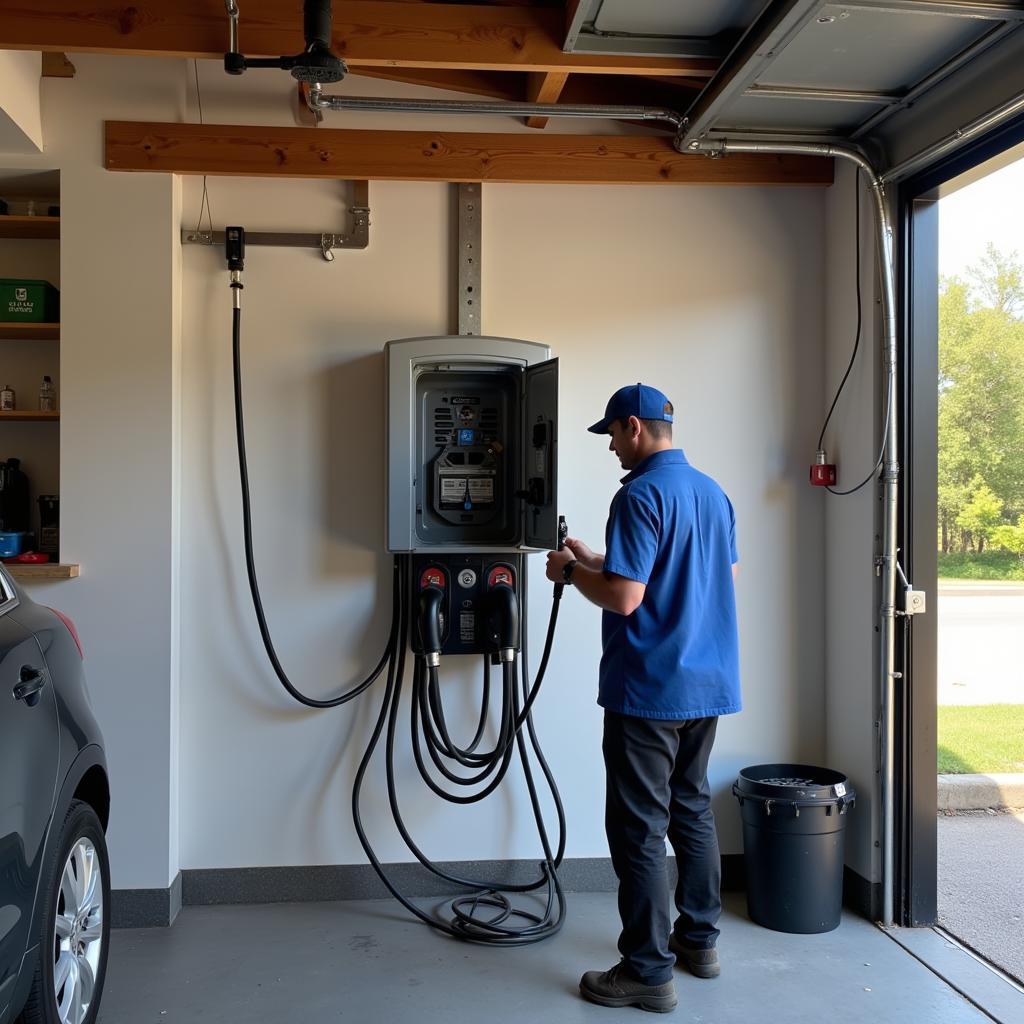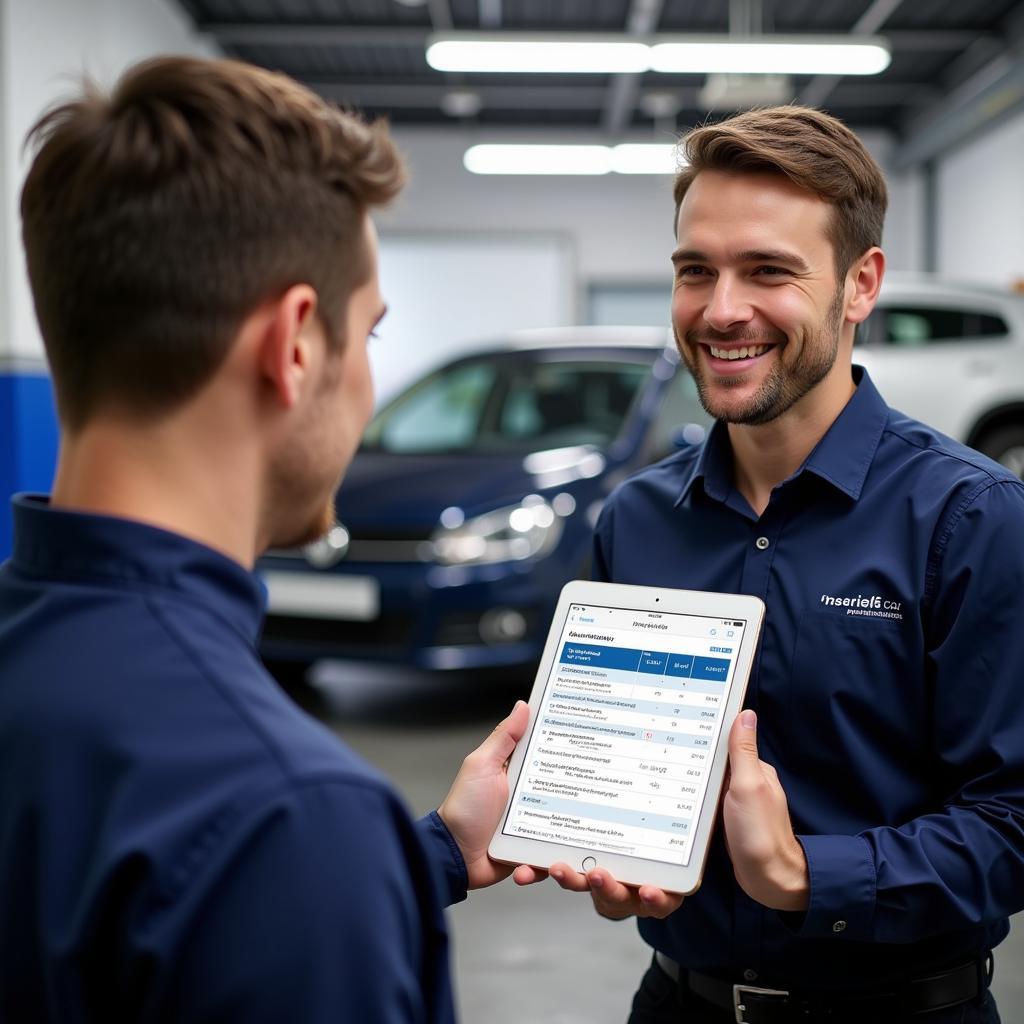What Amp Service Do I Need for Electric Car?
Switching to an electric car is an exciting step towards a greener future. You’re probably enjoying the quiet rides and instant torque. But amidst the excitement, a common question arises: “What amp service do I need for my electric car?”. Don’t worry, it’s not as complicated as it sounds. Let’s break it down to ensure you’re getting the most out of your EV charging experience.
Understanding Electric Car Charging and Amps
Before we dive into specifics, it’s helpful to grasp the basics. Charging your electric car is like filling a tank, but instead of gasoline, you’re using electricity. The speed at which your car charges is determined by amperage (amps) and voltage. Think of amps as the “flow rate” of electricity, while voltage is the “pressure” pushing it through.
Most homes in the US have a standard 120-volt outlet, which can charge an electric car, but very slowly. This is often referred to as Level 1 charging. For a quicker charge, you’ll need a 240-volt outlet, which is similar to what powers your dryer or oven. This is known as Level 2 charging.
Amp Service Requirements for Electric Cars
The amp service you need depends largely on the type of electric car you own and your charging habits. Here’s a general guideline:
- Level 1 Charging (120-volt): Typically requires a 15-amp dedicated circuit. This means no other appliances should share the same circuit. Level 1 charging is the slowest option, adding roughly 2-5 miles of range per hour.
- Level 2 Charging (240-volt): This is where things get a bit more specific. Most electric car chargers for home use come in 32-amp and 40-amp variants, requiring a 40-amp or 50-amp circuit, respectively.
Choosing the Right Amperage for You
To determine the ideal amp service for your needs, consider the following:
- Your Electric Car’s Onboard Charger: Each EV has a built-in charger with a maximum amperage it can accept. Check your car’s manual or consult the manufacturer’s website to find this information.
- Your Driving Habits: Do you have a long commute or frequently drive long distances? If so, a higher amperage charger will ensure faster charging times.
- Your Budget: Higher amperage chargers and their installation typically cost more. However, the time saved on charging might outweigh the initial investment for some.
Consulting a Qualified Electrician
 Electrician Installing EV Charger
Electrician Installing EV Charger
While it’s tempting to try and figure it all out yourself, it’s crucial to consult a qualified electrician. They can:
- Assess Your Home’s Electrical Panel: They’ll ensure your panel can handle the additional load of an EV charger and recommend any necessary upgrades.
- Install the Charger Safely and Correctly: Improper installation can lead to safety hazards and damage your car or home.
- Advise on Permits and Inspections: Some areas require permits and inspections for EV charger installations.
Don’t Forget Smart Charging Features
Many modern electric cars and chargers offer smart charging features. These can help you optimize charging times and potentially save money on electricity costs. For instance, you can schedule charging during off-peak hours when electricity rates are lower.
“Investing in the right charging setup is key to maximizing the benefits of owning an electric car,” says John Smith, a certified electrician specializing in EV charging infrastructure. “A well-chosen charger and proper installation will provide years of reliable and efficient charging.”
Conclusion
Choosing the right amp service for your electric car is an essential part of EV ownership. By understanding your car’s charging capabilities, your driving needs, and consulting a qualified electrician, you can ensure a seamless and efficient charging experience. Enjoy the ride!
FAQs
1. Can I charge my electric car from a regular outlet?
Yes, you can charge from a standard 120-volt outlet (Level 1 charging), but it’s very slow.
2. How long does it take to charge an electric car?
Charging time varies depending on the car’s battery capacity, charger amperage, and charging level.
3. Do I need a special charger for my electric car?
Your car will come with a basic charging cable. However, for faster charging (Level 2), you’ll need a dedicated EV charger.
4. How much does it cost to install an EV charger at home?
Installation costs vary but typically range from a few hundred to over a thousand dollars.
5. Can I get a tax credit for installing an EV charger?
Yes, there are federal and potential state tax credits available for EV charger installations.
You May Also Be Interested In:
Need help with your electric car? Contact us via WhatsApp: +1(641)206-8880 or Email: [email protected]. Our team is available 24/7 to assist you.

